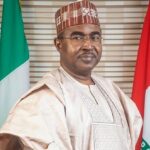When Christian Idogho began sketching ideas for harnessing sunlight more effectively, many thought it was simply another student project.
But what emerged from his undergraduate thesis has now positioned him as one of Africa’s most promising voices in sustainable energy research.
His early work focused on developing a hybrid thermoelectric generator integrated with a phase-change lensing system. The innovation combined paraffin wax’s heat-storage capability with a compound parabolic concentrator to channel sunlight more efficiently.
Beyond converting heat into electricity, the design stored excess power in a thermal energy storage unit, enabling communities to continue using electricity even after sunset.
“Christian was not just working on an academic exercise,” one of his project supervisors at the time remarked. “He was pursuing a vision-creating energy solutions for places where the grid may never reach.”
Idogho’s commitment to renewable energy did not remain theoretical. As an undergraduate, he interned at the National Center for Energy Research and Development (NCERD), where he worked on a solar photovoltaic thermal air heater integrated with thermoelectric modules. The hands-on experience exposed him to the real-world challenges of renewable technologies in developing nations and deepened his passion for clean energy innovation.
Upon graduation, Idogho expanded his focus from solar technology to artificial intelligence. He joined the Artificial Intelligence Laboratory at the University of Nigeria, Nsukka, where he merged machine learning with renewable energy research. His groundbreaking work involved designing AI models capable of predicting solar photovoltaic output across Nigerian states using more than a decade of NASA climate data.
By employing a digital twin approach, Idogho’s models simulated how power systems could adapt under varying weather conditions, a move that promised to make rural electrification more cost-effective and reliable. “Data-driven forecasting is the future of solar energy,” Idogho explained. “If we can anticipate output with accuracy, then we can plan for resilience in rural power systems.”
His use of advanced simulation tools such as ANSYS and COMSOL Multiphysics, coupled with programming in MATLAB and Python, allowed him to translate raw climate data into actionable solutions. These efforts earned him recognition beyond Nigeria, drawing interest from researchers across India, Indonesia, Mexico, South Africa, the UK, and the US.
In October 2022, his work received international spotlight at the Institution of Engineering and Technology’s #PresentIn10 Competition in the United Kingdom, where he presented his machine learning pipelines for solar output forecasting. His demonstration underscored the importance of technology-driven electrification in Africa, earning him recognition as a young scientist offering practical answers to global energy challenges.
“Idogho’s research shows what is possible when African scientists address African problems using global tools,” one competition reviewer noted after his presentation.
Now regarded as an emerging leader in materials science and clean energy, Idogho remains focused on finding innovative ways to close Africa’s energy gap. His journey from a scholarship-winning undergraduate to an international research voice underscores not only personal achievement but also the potential of African innovation. “The future of sustainable energy is not only being shaped abroad,” he said. “It is being engineered here in Africa, by young minds determined to light the path forward.”
WATCH TOP VIDEOS FROM NIGERIAN TRIBUNE TV
- Let’s Talk About SELF-AWARENESS
- Is Your Confidence Mistaken for Pride? Let’s talk about it
- Is Etiquette About Perfection…Or Just Not Being Rude?
- Top Psychologist Reveal 3 Signs You’re Struggling With Imposter Syndrome
- Do You Pick Up Work-Related Calls at Midnight or Never? Let’s Talk About Boundaries





